Address: Mala Shyianovska (Nemyrovycha-Danchenka) Street, 2, Kyiv, Building 1, Rooms 1-0105 (office of the Head of the Department),1-0107 (staff room)
Phone: +38044-256-29-03, +38044-256-29-40
e-mail: kems@knutd.edu.ua
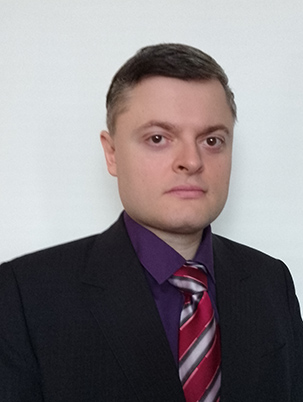
Address: Mala Shyianovska (Nemyrovycha-Danchenka) Street, 2, Kyiv, Building 1, Rooms 1-0105 (office of the Head of the Department),1-0107 (staff room)
Phone: +38044-256-29-03, +38044-256-29-40
e-mail: kems@knutd.edu.ua
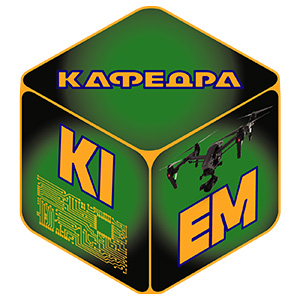
The Department of Computer Engineering and Electromechanics provides training in the following specialties: 123 Computer Engineering (educational degrees: "Bachelor" and "Master") and 124 System Analysis (educational degree: "Bachelor"), 141 Electric Power Engineering, Electrical Engineering and Electromechanics (educational degrees: "Bachelor", "Master" and "Doctor of Philosophy").
The competitive advantage of the educational programs of the Department of Computer Engineering and Electromechanics is
The Department of Computer Engineering and Electromechanics started its history in 1992 when, according to the plan for the first year of study, 25 people were enrolled, and in 1997 the first graduation of experts in electrical engineering took place. In 1998, the Department received a license to train masters in "Electrical appliances" and in 1999 their first graduation took place. In 2001, the Department received IV-level accreditation in the field of "Electromechanics" and "Electrical appliances". Since 1992, the Department of Computer Engineering and Electromechanics has trained more than 1,200 specialists in electrical appliances.
The Department was headed by: 1992-1995 – Prof. O.A. Starodub; 1995-2010 – Honored Scientist of Ukraine, Prof. V.V. Kostrytsky; 2011–2012 – Honored Worker of Education of Ukraine, Prof. O.P. Burmistenkov; 2012–2023 – Prof. B.N. Zlotenko.
Since December 2023, Associate prof. D.V. Statsenko has been in charge of the Department.
In 2022, the Department received accreditation for training bachelors in the educational program "Computer Systems and Networks" and masters in the educational program "Computer Engineering", specialty 123 "Computer Engineering", as well as masters in the educational program "Electrical appliances", specialty 141 "Electric Power Engineering, Electrical Engineering and Electromechanics".
|
Educational program: |
Computer Systems and Networks |
|
Degree: |
Bachelor of Computer Engineering |
|
Course length: |
8 semesters (4 years) |
|
ECTS credits: |
240 |
|
Language of the instruction: |
Ukrainian/ English |
|
Aim: |
Formation and development of general and professional competencies in the field of computer engineering. |
|
Learning outcomes: |
Upon completion of the educational program, the bachelor student will demonstrate:
Deep knowledge and understanding:
|
|
Educational program: |
Computer Engineering |
|
Degree: |
Master of Computer Engineering |
|
Course length: |
3 semesters (1 year and 6 months) |
|
ECTS credits: |
90 |
|
Language of the instruction: |
Ukrainian/ English |
|
Aim: |
Formation and development of general and professional competencies in the field of Computer Engineering, aimed at obtaining by students the necessary qualities for employment, and ensuring their ability to work. |
|
Learning outcomes: |
Upon completion of the educational program, the bachelor student will demonstrate:
Deep knowledge and understanding:
|
|
Educational program: |
Electromechanics |
|
Degree: |
Bachelor of Electric Power Engineering, Electrical Engineering and Electromechanics |
|
Course length: |
8 semesters (4 years) |
|
ECTS credits: |
240 |
|
Language of the instruction: |
Ukrainian/ English |
|
Aim: |
Formation and development of general and professional competencies in the field of power, electrical and electromechanical engineering. |
|
Learning outcomes: |
Upon completion of the educational program, the bachelor student will demonstrate:
Deep knowledge and understanding:
|
|
Educational program: |
Electrical appliances |
|
Degree: |
Master of Electric Power Engineering, Electrical Engineering and Electromechanics |
|
Course length: |
3 semesters (1 year and 6 months) |
|
ECTS credits: |
90 |
|
Language of the instruction: |
Ukrainian/ English |
|
Aim: |
Formation and development of general and professional competencies in the field of electrical appliances, aimed at obtaining by students the necessary qualities for employment, and ensuring their ability to work. |
|
Learning outcomes: |
Upon completion of the educational program, the bachelor student will demonstrate:
Deep knowledge and understanding:
|
|
Educational program: |
Electric Power Engineering, Electrical Engineering and Electromechanics |
|
Degree: |
Doctor of Philosophy in Electric Power Engineering, Electrical Engineering and Electromechanics |
|
Course length: |
8 semesters (4 years) |
|
ECTS credits: |
48 |
|
Language of the instruction: |
Ukrainian/ English |
|
Aim: |
Formation and development of general and professional competencies in the field of power, electrical and electromechanical engineering for carrying out scientific, research, and innovation activities, as well as the implementation of the results obtained. |
|
Learning outcomes: |
Upon completion of the study program, the PhD student will demonstrate:
Deep knowledge and understanding:
|
Scientific work is one of the leading activities of the academic staff of the Department. The main scientific field of the Department was formed in the 70s of the last century and was aimed at the development of new types of light industry equipment and electrical household appliances. It was formed work under the guidance of professors G.A. Piskorskyi, O.P. Burmistenkov, and I.V. Petko I.V., when in the 1970-95s more than 20 graduate students and researchers defended their PhD theses on this topic.
The research work of the Department of Computer Engineering and Electromechanics is organized in five educational and scientific laboratories of different directions.
The scientific activity of the educational and scientific laboratory of software and technical means of energy consumption management (scientific supervisor Prof. I. O. Shvedchikova) is carried out in the direction of developing smart systems for managing the electricity consumption of local objects with renewable energy sources; increasing the energy efficiency of energy saving measures.
The scientific activity of the educational-scientific laboratory of electrotechnical converters and electromechanical systems (scientific supervisor Prof. O. O. Shaviolkin) is carried out in the direction of creating multifunctional converter units for combined power supply systems with renewable sources of electricity; improvement of semiconductor converters of electrical energy for power engineering and electromechanical systems.
The scientific activity of the educational and scientific laboratory of polymer processing technology (scientific supervisor Prof. B.M. Zlotenko) is carried out in the direction of the development and implementation of pilot informational and investment projects in the field of polymer processing; provision of informational and advisory support on the processing of polymer materials and the latest energy-efficient technologies; international cooperation in the field of polymer processing and exchange of experience between the regions of Ukraine; demonstrations of working samples of energy-efficient equipment for the processing of polymer materials.
The scientific activity of the educational and scientific laboratory of resource conservation and rational nature use (scientific supervisor Prof. I. V. Panasiuk) is carried out in the direction of conducting research into the complex properties of new materials and the development of innovative resource-saving technologies and equipment; development of technologies for utilization and removal of household and industrial waste, technologies for rational water use, increasing the efficiency of wastewater treatment and prevention of pollution of water bodies.
The scientific activity of the educational and scientific laboratory “Energy Efficiency Center” (scientific supervisor Prof. I. V. Panasiuk) is carried out in the direction of the development and implementation of pilot information and investment projects in the field of energy saving and energy efficiency; provision of informational and advisory support on energy efficiency, best energy-saving practices and the latest energy-efficient technologies; international cooperation in the field of energy efficiency and ecology and exchange of experience between the regions of Ukraine; dissemination of knowledge about optimal opportunities to reduce costs for energy supply among state and local authorities, communal and state enterprises, budget institutions responsible for implementing measures of the city’s energy saving program and the active population; demonstrations of working samples of energy-efficient equipment.
The Department takes part in the research work of the University, namely:
For more than a decade, the teaching staff have been performing state research orders funded by budgetary allocations.
In recent years, the employees of the Вepartment have published 130 scientific papers, 15 of which were published abroad and 34 works with the participation of students, received 10 patents for invention, published 14 monographs, 3 textbooks, and 18 manuals. The teachers take part in scientific and practical conferences, including the international ones.
Students are involved in the research work of the Department. Every year, Master's theses and diploma projects are performed. All students starting from the fourth year of training are involved in the research work, which is determined by individual tasks. Students make presentations and participate in discussions as opponents. The best works are recommended to the student scientific and technical conference. Part of this work develops into a course and degree projects. Every year, students under the guidance of teachers of the Department publish 5-6 scientific articles and 12-15 abstracts of reports. With the participation of students, stands are designed and manufactured for the study of the characteristics of electrical apparatuses, household appliances, and smart control systems.
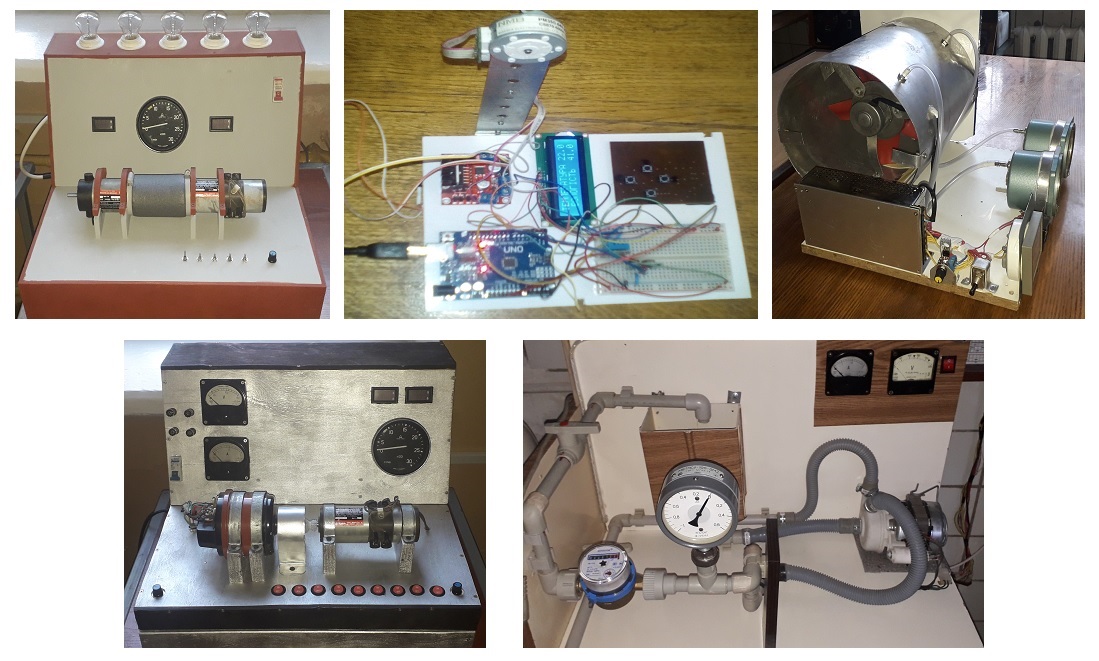
Each year, students participate in the university-level competitions in the courses of the Department, the best works are recommended by the Department to participate in competitions and Olympiads of the university or national level.

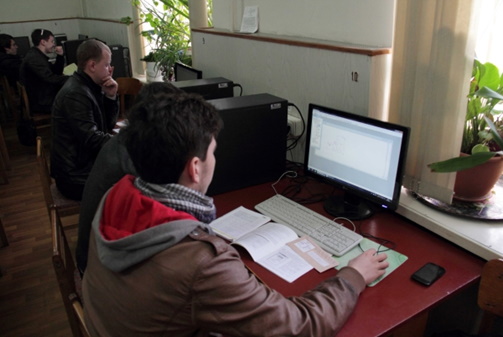
In 2018 – 2021, the most active students of the Department prepared their scientific works and became the winners of the second round of the All-Ukrainian Competition of Student Research Papers, which is held annually in various fields of knowledge at leading universities of Ukraine. Thus, in 2021, students of the Department M. Kharchenko And I. Tsyganenko took second place at the All-Ukrainian Competition of Student Research Papers in specialty 141 "Electric Power, Electrical Engineering and Electromechanics", Kremenchuk city.
|
|
|
|
|
Students of the Department also take part in International competitions of student scientific works:
• 2021 - students M. Kharchenko (Group BEM-18) and V. Ishchuk (University of Žilina, Slovak Republic (Slovakia)) with a work on the topic: "IMPROVEMENT OF THE HYBRID PHOTOELECTRIC SYSTEM WITH A STORAGE BATTERY TO MEET THE OWN NEEDS OF THE LOCAL OBJECT" took 2nd place at the International Competition of Student Research Papers in the specialty 141 "Electric Power, Electrical Engineering and Electromechanics" at Mykhailo Ostrogradsky National University of Kremenchuk;
• 2022 - student Ya. Malyy (Group MgEM-21) took 1st place with his work on the topic: "MAGNETIC SEPARATION COMPLEXES FOR SYSTEMS FOR THE PROCESSING OF SOLID SHEETS" at the II round of the International Competition of Student Research Papers in the specialty 141 "Electric Power Engineering, Electrical Engineering and Electromechanics » at Mykhailo Ostrogradsky Kremenchuk National University;
• 2022 - students D. Zakharov and M. Latko (Group BKI-18) took 2nd place with their work on the topic: "COMMUNICATION MODULE FOR ESTIMATING THE FORECAST OF THE INTENSITY OF GENERATION OF A PHOTOVOLTAIC BATTERY FROM A WEB RESOURCE" at the II round of the International Competition of Student Research Papers in the specialty 141 "Electric Power Engineering, Electrical Engineering and Electromechanics" at Mykhailo Ostrogradsky National University of Kremenchuk.
Scientific Schools
At the Department, two one scientific school has been formed and its works are known not only in Ukraine but also abroad.
The scientific direction is the research of technological processes, machines, and devices used in the production and operation of electrical household appliances. The head of the school - Doctor of Technical Sciences, Professor O.P. Burmistenkov. Over the past few years in this area, four doctorates and two candidate’s theses have been defended.
The Department provides a postgraduate course for the training of doctors of philosophy under the educational and scientific program 141 " Electric Power Engineering, Electrical Engineering and Electromechanics". Currently, 7 post-graduate students are being trained at the Department of Computer Engineering and Electromechanics.
In 2020-2022, the employees of the Department and higher education seekers took part in the work of international scientific and scientific-practical conferences abroad:
* with the participation of post-graduate students.
Professional training of students is carried out by highly qualified teaching staff of the Department.
|
In 2010, he graduated from Kyiv National University of Technologies and Design. In 2013, he was awarded the academic degree of Candidate of Technical Sciences. He has 18 scientific papers, and 1 monograph. Research interests: computer systems and networks; household appliances; electromechanics; computer integrated electromechanical devices and systems. |
|
In 1983, he graduated from Kyiv Technological Institute of Light Industry. In 2005, a Doctor of Technical Science degree was awarded, and in 2006 - the academic title of Professor. Provides training through graduate and doctoral studies. Under his supervision, 3 candidate and 1 doctoral dissertations were defended. Author of more than 200 scientific and methodical works, including in foreign publications, 8 monographs, 3 textbooks. Research interests: computer systems and networks; household appliances; electromechanics; light industry equipment and technologies; dynamics of bulk media; ecology. |
|
In 2002, he graduated from Kyiv National University of Technologies and Design. In 2007, he was awarded the scientific PhD degree, in 2011 – the academic title of associate professor. In 2020, a Doctor of Science degree was awarded. Has 50 scientific works, 3 manuals, and 1 monograph. Research interests: computer systems and networks; household appliances; electromechanics; dynamics of the movement of bulk materials in mixing complexes of continuous action, IT-technology in household appliances. |
|
Borys ZLOTENKO, Professor, Doctor of Technical Sciences, Excellence in Education of Ukraine. In 1986, he graduated from Khmelnytskyi Technological Institute of consumer services. In 2003, he was awarded the degree of Doctor of Technical Sciences, in 2004 - the academic title professor. Has 120 scientific papers, 5 monographs, 1 textbook, and 3 manuals. Research interests: computer systems and networks; household appliances; electromechanics; computer integrated electromechanical devices and systems; equipment and technologies of light industry. |
|
In 1977, he graduated from Lviv Polytechnic Institute, the Faculty of Automation. his total scientific and teaching experience is 27 years. The theme of the doctoral dissertation is "Inductive technologies of system information-analytical research in the tasks of innovative design". He is the author of about 100 scientific works, including about 30 scientific papers in foreign publications, which are part of the scientific base of Scopus and Web of Science, author of 2 textbooks, and co-author of 4 monographs. Research interests: computer systems and networks; household appliances; electromechanics; inductive technologies of system information analytical research in innovative design problems, intellectual methods and mathematical tools for modeling of complex systems. |
|
In 1978, he graduated from Donetsk Polytechnic Institute with a degree in "Electric drive and automation of industrial plants" and received the qualification of "electrical engineer". Doctor of Technical Sciences since 2012. The theme of the work is "Multilevel frequency converters with improved energy characteristics". The academic title of professor at the Department of Electrical Engineering was awarded on 31.05.2013. His experience in pedagogical work in higher educational institutions of the IV level of accreditation is 29 years. The author of more than 200 scientific works, in particular in foreign publications and in the scientometric databases Scopus and Web of Science. Research interests: computer systems and networks; household appliances; electromechanics; power (energy) electronics, adjustable electric drive with semiconductor energy converters. |
|
In 1983, she graduated from the Department of Electrical Engineering of Luhansk Mechanical Engineering Institute (now - Volodymyr Dahl East Ukrainian National University) with a degree in "Electrical Machines and Apparatus" and received a qualification of an electrical engineer. Doctor of Technical Sciences since 2012. She defended her doctoral dissertation on "Scientific basis of a system design of magnetic separators" at Kremenchuk National University named after Mikhail Ostrogradsky, specialty 05.09.01 - Electrical machines and devices. The academic title of Professor of the Department of Instruments was awarded in 2013. Experience in pedagogical work in higher educational institutions of the IV level of accreditation is 25 years. The author of more than 400 scientific works, in particular in foreign publications and in the scientometric databases Scopus and Web of Science. Research interests: computer systems and networks; household appliances; electromechanics; structural and system research of electromechanical energy converters; numerical calculations of electromagnetic fields in electric machines and devices. |
|
In 2011, he graduated from the National University of Bioresources and Nature Management of Ukraine, majoring in "Energy of Agricultural Production". In 2021, the scientific degree of Candidate of Technical Sciences was awarded. The topic of the work is "Management of electricity consumption of higher education institutions to increase their energy efficiency." Author of 15 scientific works. He has been working at the Department of Computer Engineering and Electromechanics since 2021, with a total scientific and pedagogical experience of 2 years. Research interests: integrated management of energy efficiency of buildings and engineering networks. |
|
In 1980, she graduated from Kyiv Technological Institute of Light Industry. In 1986, she was awarded the scientific degree of Candidate of Technical Sciences, in 1991 – the academic title of associate professor. Has more than 90 scientific papers, 6 manuals, 1 textbook, and 1 monograph. Research interests: computer systems and networks; household appliances; electromechanics; bulk media dynamics, computer simulation of electromechanical systems, IT technology in electrical engineering. |
|
In 1997, she graduated from Kyiv State Academy of Light Industry of Ukraine. In 2015, she was awarded the academic degree of Candidate of Technical Sciences. She has more than 50 scientific works, in particular in foreign publications and in the scientometric databases Scopus and Web of Science, 1 textbook. Research interests: computer systems and networks; household appliances; electromechanics; engineering and computer-aided design of modern electrical appliances. |
|
Ievgeniia ROMANIUK, PhD, Associate Professor. Research interests: computer systems and networks; household appliances; electromechanics; light industry equipment and technologies; dynamics of bulk media; ecology. |
|
In 1998, he graduated from Kyiv State Academy of Light Industry of Ukraine. Has 10 scientific works. |
|
Volodymyr NYCHEHLOD, assistant. In 2019, he graduated with honors from the Kyiv National University of Technology and Design, majoring in "Power Engineering, Electrical Engineering and Electromechanics". |
|
In 2014, he graduated from the Eastern Ukrainian National University named after Volodymyr Dahl, majoring in "Home Appliances". |
|
Support Staff |
|
In 1980, he graduated from Kyiv Technological Institute of Light Industry. He has 55 scientific papers and 6 manuals. Research interests: improvement of design and technological processes of complex electrical appliances. |
|
Valentyna DOROSHENKO, senior laboratory assistant. In 1979, she graduated from Lviv Vocational College of Food Industry. |
|
Svitlana LINICHENKO, Head of the laboratory. |
In the 2022-2023 academic year, the Department has 235 full-time students, 60 part-time students, and 10 distance learning students.
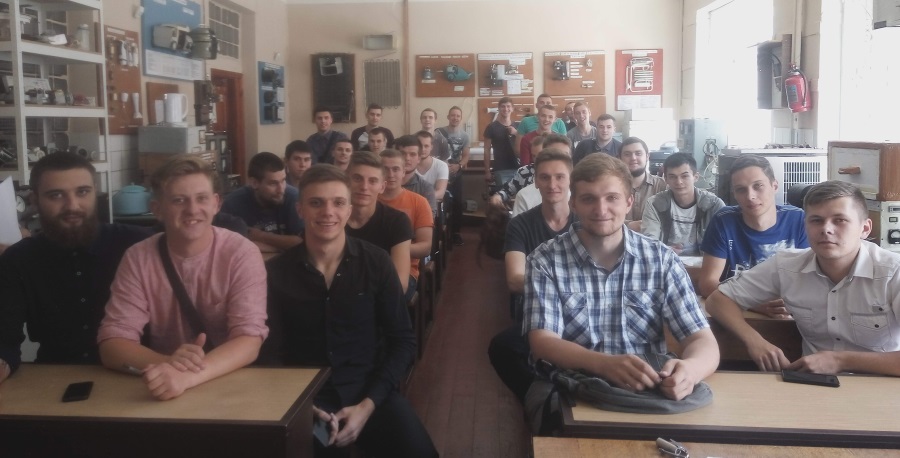
For each group of students a curator teacher is attached. They introduce students to guidelines governing the organization of educational process on credit-modular system; provide group and individual counseling with the aim of making the most rational individual plans for students, monitor their implementation; protect the educational interests of students; help young people to participate in the cultural life of the capital. Cultural events are held, theaters, exhibitions, museums and sporting events are regularly attended. For students at KNUTD there are sports sections (football, volleyball, basketball, wrestling, tennis, badminton), the intellectual game "What? Where? When? ”, the Theater Studio“ No Makeup”, The Club of merry and smart, the group of ballroom dance, the dance group “BOOM”, the vocal ensemble “Smile ”. For summer holidays in the picturesque locality of the Kyiv region on the bank of the Kozynka River there is a student sports and recreation camp "Molodizhny".
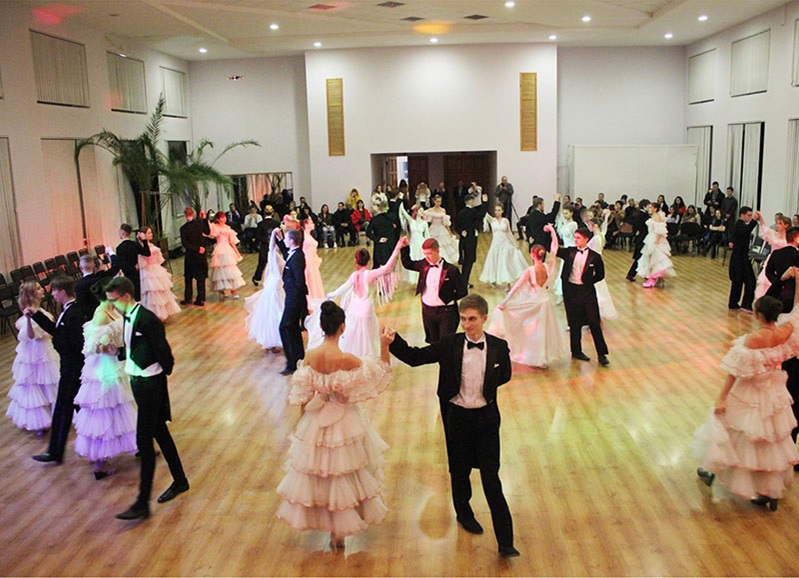
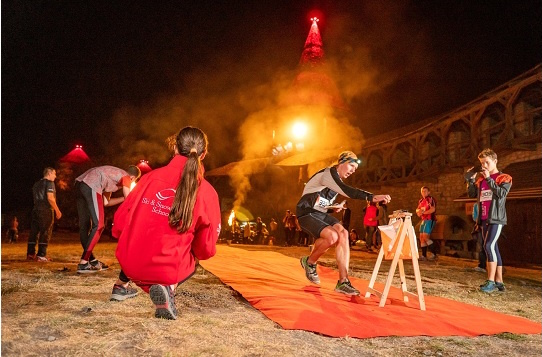
All students of the Educational and Scientific Institute of Engineering and Information Technology residing in cities and towns outside of Kyiv and Kyiv region are provided with accommodation in a dormitory located near the university buildings.
Practical-oriented training of students of the Department provides excursions to leading professional enterprises and institutions, participation in scientific-practical conferences and forums.
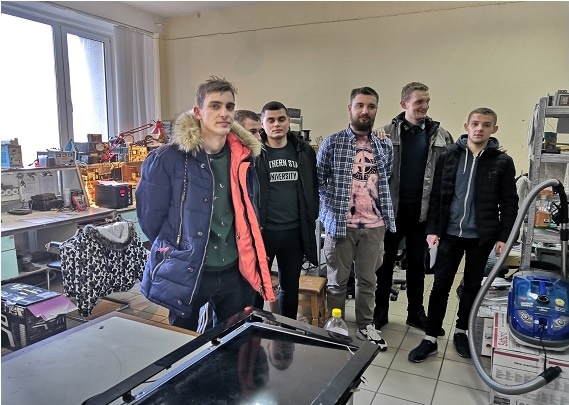
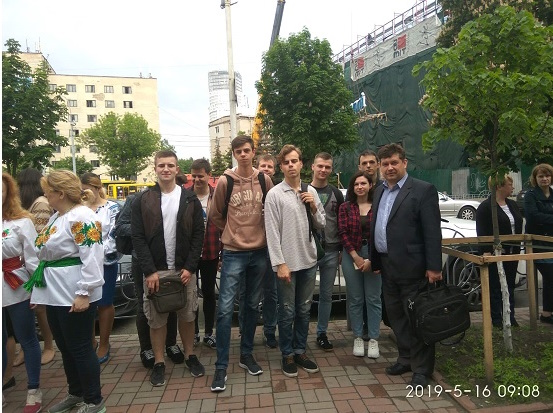
Specialists trained by the Department for the specialty 123 Computer engineering will know:
Upon completion of the educational program, the bachelor of computer systems and networks will demonstrate:
Deep knowledge and understanding:
Specialists trained by the Department for the specialty 141 will know:
As a result of their study, students of electromechanics can:
The high professional level of training of graduates of the Department of Computer Engineering and Electromechanics will allow students to:
The Department has two scientific clubs:
1) Programming of Microcontrollers.
Scientific supervisor: Doctor of Technical Sciences, Associate Professor Volodymyr Statsenko.
2) "Eco club KNUTD".
Scientific supervisor: PhD, Assoc. Prof. Eugene Romaniuk.
3) Prospects of Alternative Energy.
Scientific supervisors: Doctor of Sciences, Professor Iryna Shvedchykova, Doctor of Science, Professor Oleksandr Shavolkin.
Participants of the scientific clubs annually make presentations at the International Scientific and Practical Conference "Mechatronic Systems: Innovation and Engineering", All-Ukrainian Scientific Conference of Young Scientists and Students "Scientific developments of young people at the current stage", and publish scientific articles. The results of the clubs’ activities can be found in the publications and materials of conferences on the Department’s website kems.knutd.edu.ua.
Students' scientific development
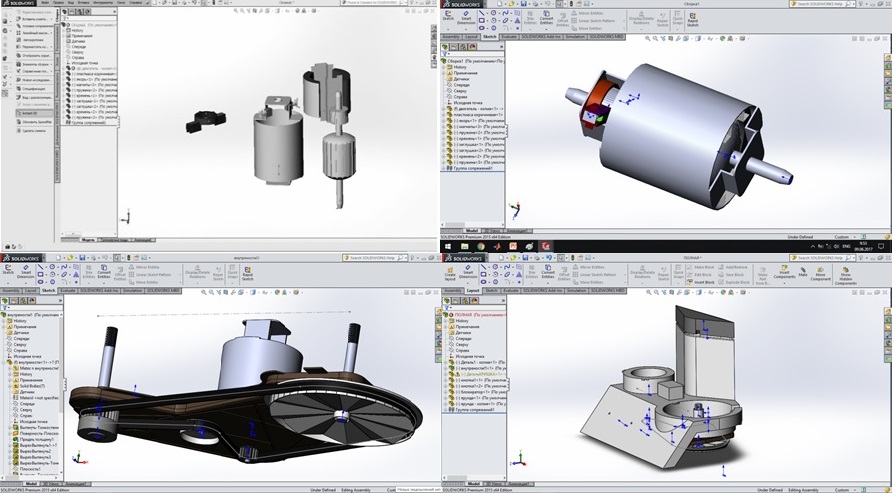
Our graduates successfully work at the domestic and foreign enterprises of Electric Machine and instrument industries (such as Bosch, Moulinex, Rowenta, Tefal, Samsung, Sony, and others.), that specialize in the repair and sales, operation and maintenance of electrical appliances.
Gordeev M.A.- Technical director of the company I.B.S. in maintenance of household appliances;
Melnik A. - General Representative of Bosch firm in Ukraine;
Matkovskiy I.P. - Director of "Tehnoholod" firm;
Overchuk M. - Deputy Director of the supermarket chain "Eldorado" (Zaporozhe);
Daydey A. - Chief Engineer of "Zaporozhenergo";
Matveev A.G. - Manager of Microsoft company in Ukraine;
Mihalko R.O. - Head of “UniSERT”;
Stelmach Yu.M. - Deputy Director of “Ukravtoterm”.
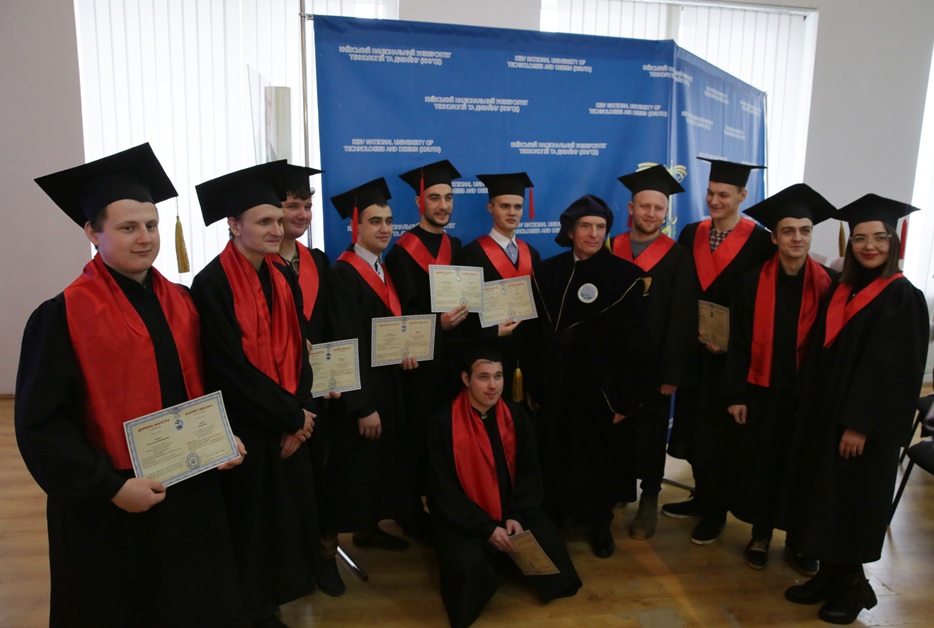
Graduates of the department
The Department carries out scientific and scientific-technical cooperation with foreign organizations:
The Department also trains specialists for Georgia, Turkey, Azerbaijan, and Moldova.
On the basis of the Department of Computer Engineering and Electromechanics of Kyiv National University of Technologies and Design, the International Scientific and Practical Conference "Energy-Efficient University" is held annually with the aim of popularizing scientific achievements and the best practical implementations of energy-saving in educational institutions, industrial and residential facilities, implementing system solutions regarding the reduction of energy consumption, for the exchange of information and experience on the development and implementation of innovative energy saving projects.